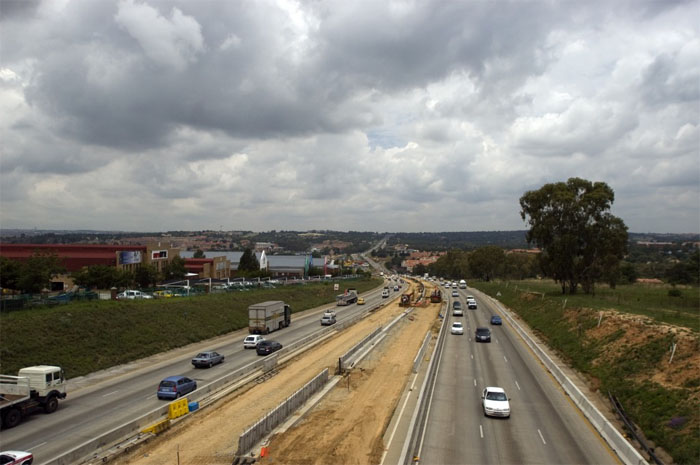
Africa’s infrastructure spend is set to rise as a report reveals that 30 per cent of the infrastructure is dilapidated.
According to a recent PricewaterhouseCoopers (PWC) report, it indicated that East, Southern and West Africa could be spending up to $180 billion on infrastructure by 2025.
The report highlights that at least 60 to 70 per cent of that amount is owed to infrastructure in South Africa and Nigeria. The West African country was leading due to the fundamentals of the oil price and naira shifts being stable despite being presently supressed.
Head of capital projects and infrastructure at PwC, Jonathan Cawood, said that infrastructure outlook will be increasing by 10 per cent per annum.
Cawood told CNBC Africa there is a “great sense of enthusiasm, commitment and willingness to engage in new ideas” from government developers, funders and operators of infrastructure.
The strong relationship between China and African economies could see the Asian country being a key player in terms of funding, knowhow and labour. Although Cawood notes that localisation and local participation should be a priority moving forward.
Capital innovation for infrastructure requires clarity of regulatory frameworks, so that investors feel “more secure” of their long-term nature.
Shortage of funding came out as the main issue in the PwC survey, however Cawood said after unpacking it, there was actually “a tremendous amount of funding available”.
“It’s really about better project preparation and feasible projects that are part of a bigger longer term master plan.”
On the issue of budget overspending for capital projects, he assured that it is not a dilemma unique only to Africa.
“Capital projects across the globe, in fact many of them coming in late, over-budget and not delivering the promised outputs.”
Public-Private Partnerships in Africa have an opportunity to grow if the private sector can have an open window of continual opportunities and have government be an equal player.
“Sometimes government does have to put in the catalytic infrastructure, those first pieces of infrastructure that create the building blocks of a project,” said Cawood.
He emphasised that there are risks that can be better carried by government. By allocating all the risks to the private sector pushes prices up and discourages funding.
FRENCH VERSION
Selon un récent rapport de PricewaterhouseCoopers (PWC), il a indiqué qu’Afrique orientale, australe et occidentale pourraientdépenser jusqu’à $ 180 milliards sur les infrastructures d’ici à2025.
Le rapport souligne qu’au moins 60 à 70 pour cent de cemontant est dû pour les infrastructures en Afrique du Sud et leNigeria. Le pays ouest–africain était en tête en raison desprincipes fondamentaux du prix du pétrole et naira quarts étantstable, bien qu’il soit actuellement perdu.
Chef de projets d’immobilisations et d’infrastructure chez PwC,Jonathan Cawood, déclaré qu’outlook infrastructure augmenterade 10 % par an.
PWC Afrique : 30 % des infrastructures de l’Afrique est délabré
La relation forte entre les économies de la Chine et de l’Afriquepourrait voir les pays asiatiques étant un acteur clé en matière definancement, de savoir-faire et de travail. Bien que Cawood fait remarquer que la localisation et la participation locale devraientêtre une priorité va de l’avant.
Capitale innovation infrastructure nécessite clarté des cadres deréglementation, afin que les investisseurs se sentent « plus sûres» de leur nature à long terme.
Pénurie de financement est sorti comme le principal problèmedans la PwC survey, cependant Cawood dit après déballage, il yavait en fait « une énorme quantité de fonds disponible ».
« C’est vraiment sur la meilleure préparation des projets et desprojets réalisables qui font partie d’un plus gros plan plus longterme. »
Sur la question du budget dépenses excessives pour projetsd’immobilisations, il a assuré qu’il n’est pas un dilemme uniqueseulement à l’Afrique.
« Projets d’immobilisation à travers le monde, en fait, bon nombre d’entre eux venant retard, dépassement de budget et ne pas produire les résultats promis. »
Les partenariats public-privé en Afrique ont l’occasion de croîtresi le secteur privé peut avoir une fenêtre ouverte des possibilitéscontinues et ont les gouvernement à être un joueur égal.
« Parfois gouvernement doit-il mettre dans l’infrastructurecatalytique, ces premiers textes de l’infrastructure qui créent leséléments constitutifs d’un projet, » a déclaré Cawood.
Il a souligné qu’il y a des risques qui peuvent être mieuxtransportés par le gouvernement. En attribuant tous les risquespour le secteur privé fait monter les prix et décourage lefinancement.


